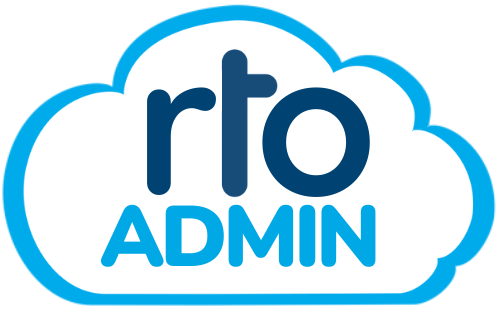Have you ever considered what goes into ensuring the quality and recognition of vocational education and training in Australia? Understanding the mechanisms and standards in place can provide a clearer picture of the industry.
Scope and Renewal
RTO Definition
At the heart of Australia’s vocational education framework lies the Registered Training Organisation (RTO). An RTO is an entity that has been registered to deliver and assess nationally recognized training. This includes providing qualifications that are both respected within the industry and compliant with national standards. By focusing on real-world skills and knowledge, RTOs play a crucial role in the professional development pathway for many individuals.
Registration and Standards
To operate as an RTO, an organization must be registered by the Australian Skills Quality Authority (ASQA). The ASQA ensures that RTOs meet the stringent standards set by the Australian Quality Training Framework 2019 (AQTF 2019). This framework outlines the requirements for RTOs to deliver high-quality training and assessment services, ensuring that students receive education that is both consistent and reliable.
The AQTF 2019 standards cover various aspects such as the qualifications of trainers and assessors, the quality of training materials, and the assessment processes used. By adhering to these standards, RTOs help maintain the integrity and quality of the vocational education sector in Australia.
Scope and Renewal
RTOs are required to define their training scope clearly. This involves specifying the qualifications and courses they are authorized to deliver. The training scope must be aligned with industry needs and be updated regularly to stay relevant.
Renewal of registration is a mandatory process that occurs at least every five years. During the renewal, RTOs undergo a comprehensive review to ensure continued compliance with the AQTF 2019 standards. Additionally, RTOs can be audited at any time to verify their compliance. These audits can be scheduled or unannounced, reinforcing the emphasis on maintaining high standards at all times.
Benefits of Studying with RTOs
Choosing to study with an RTO offers numerous benefits, particularly because RTOs deliver accredited vocational education and training (VET) qualifications. These qualifications are recognized across industries, ensuring that the skills and knowledge you gain are relevant and up-to-date.
RTOs employ trainers who are experienced industry professionals, providing insights that go beyond textbook learning. With a focus on practical skills, RTOs equip students to meet the demands of the workforce effectively.
Qualification Levels
RTOs offer a diverse range of qualification levels to cater to different educational needs and career stages:
- Certificates I-IV: These are foundational to intermediate-level qualifications, ideal for entry-level positions or developing specific skill sets.
- Diploma and Advanced Diploma: These qualifications provide more in-depth knowledge and skills, preparing students for technical or management roles within their field.
- Vocational Graduate Certificate and Vocational Graduate Diploma: These are advanced-level qualifications designed for individuals seeking specialized skills or knowledge, often at a post-graduate level.
Types of RTOs
The landscape of RTOs is diverse, encompassing various types of providers:
| Type | Description |
|---|---|
| TAFE Colleges | Publicly funded institutions offering a wide range of vocational courses. |
| Private Providers | Independent organizations offering specialized and often niche training programs. |
| Community Groups | Not-for-profit organizations providing training typically focused on community needs and development. |
| Schools | Secondary schools that offer vocational training as part of their curriculum. |
| Higher Education Institutions | Universities and colleges providing vocational qualifications alongside traditional degrees. |
| Industry Bodies | Professional organizations offering training designed to meet specific industry requirements. |
Regulatory Body
The Australian Skills Quality Authority (ASQA) acts as the primary regulatory body for RTOs. ASQA’s responsibilities include registering RTOs, ensuring compliance with national standards, and conducting audits. ASQA regulates RTOs across most Australian states and territories, including those offering courses to international students.
Course Offerings
RTOs deliver a wide array of courses across numerous fields, catering to various interests and career aspirations. Some of the popular fields include:
- Accounting
- Animal Care
- Arts and Design
- Business
- Community Services
- Education
- Engineering
- Health
- Information Technology (IT)
These courses are designed to provide hands-on experience and practical skills, ensuring that students are job-ready upon completion.
Providers and Methods
Understanding the different learning methods offered by RTOs can help you choose the best fit for your lifestyle and learning preferences. Courses can be delivered through several methods:
| Study Method | Description |
|---|---|
| Blended Learning | Combines face-to-face instruction with online learning components. |
| In-Class | Traditional classroom-based learning where students can interact directly with instructors and peers. |
| Online | Flexible learning options allowing students to study at their own pace from any location. |
| Virtual Classes | Live online classes providing real-time interaction with instructors and classmates. |
These varied methods ensure that RTOs can cater to a broad range of students, including those who require flexibility due to work or personal commitments.
National Database
All RTOs are listed in the National Training Information Service (NTIS) database. This database serves as a comprehensive resource, allowing prospective students and industry stakeholders to verify the registration status and training scope of all RTOs. By referencing the NTIS, you can make informed decisions about the qualifications and courses on offer.
Operational Support for RTOs
RTOs often require robust administrative systems to manage their operations efficiently. Various platforms can assist in setting up these systems, ensuring that RTOs can focus on delivering high-quality training.
Student Management System
A Student Management System (SMS) is essential for maintaining comprehensive records of student enrollments, progress, and achievements. It streamlines administrative tasks, such as attendance tracking and reporting, making it easier to comply with regulatory requirements.
Learner Management System
A Learner Management System (LMS) is crucial for delivering online and blended learning courses. It provides tools for content creation, assessment, and learner engagement, ensuring that students have a smooth and interactive learning experience.
Training Management System
A Training Management System (TMS) helps in organizing and scheduling training programs. It ensures that courses are conducted efficiently, and all necessary resources, including instructors and materials, are available as required.
Cloud-Based Platforms
Many RTOs now adopt cloud-based platforms for their administrative needs. These platforms offer several advantages:
- Scalability: Easily accommodates the growing number of students and courses.
- Accessibility: Allows staff and students to access information from any location with internet connectivity.
- Automation: Streamlines repetitive tasks, improving efficiency and accuracy.
Automated Processes
Automation is another key aspect of modern RTO operations. Automated processes can handle tasks such as enrollment confirmations, assessment scheduling, and certificate issuance. This reduces the administrative burden on staff and ensures that processes are completed accurately and on time.
Ensuring Quality and Compliance
Maintaining high standards and complying with regulatory requirements is paramount for RTOs. Several strategies can help achieve these goals.
Quality Assurance
Quality assurance processes are vital for ensuring that training and assessment meet industry standards. Regular internal audits and reviews can help identify areas for improvement and ensure continuous compliance with AQTF 2019 standards.
Staff Professional Development
Investing in the professional development of trainers and assessors is crucial for maintaining high-quality training services. Regular workshops, industry conferences, and professional certifications can help staff stay updated with the latest industry trends and educational practices.
Student Feedback
Collecting and analyzing student feedback is an invaluable tool for improving training programs. Feedback can provide insights into the effectiveness of teaching methods, the relevance of course content, and the overall student experience. RTOs can use this information to make necessary adjustments and enhance their offerings.
Risk Management
Proactive risk management is essential for mitigating potential issues that could affect an RTO’s operations or reputation. This includes identifying potential risks, developing risk mitigation strategies, and regularly reviewing these strategies to ensure their effectiveness.
Conclusion
Understanding the scope and renewal processes of RTOs, along with the benefits and structures they offer, is crucial for anyone considering vocational education in Australia. RTOs play a vital role in providing industry-relevant skills and knowledge, ensuring that students are well-prepared for the workforce.
By adhering to stringent standards and undergoing regular renewals and audits, RTOs maintain the quality and integrity of the vocational education sector. Whether you are a prospective student or an organization looking to understand the framework better, this comprehensive overview provides the essential information needed to navigate the world of RTOs effectively.




